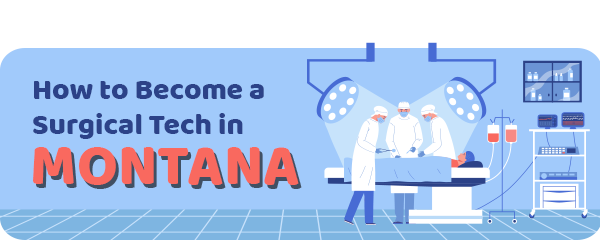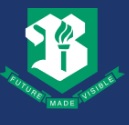
The operating rooms in Montana are equipped with a dedicated team of healthcare professionals, always prepared to respond promptly, especially in critical situations.
This specialized team comprises:
- Surgeons
- Anesthesia specialist
- Surgical nurse
- Surgical technician
Their collaborative efforts begin prior to the commencement of surgery and continue even after the procedure’s completion.
The last type of professionals is often referred to by alternative titles, such as operation room (OR) techs and scrub techs.
Article Table of Contents
Job Description and Duties of Surgical Technologists
Surgical technologists undertake a wide range of responsibilities during their shifts, including:
- Preparing patients for surgery
- Transporting patients to and from the OR
- Preparing the OR with surgical equipment and supplies
- Monitoring the instrument count throughout surgery
- Handing the surgeon medical instruments
- Closing wounds and bandaging patients
It’s important to note that these duties do not encompass the entire scope of responsibilities that surgical technologists fulfill.
Training and Education for Surgical Technologists
Surgical technologists in Montana are not regulated by a specific governing institution.
Nevertheless, achieving a career in this field is a comprehensive process.
To embark on the path of becoming a surgical technologist, you must:
- Graduate from high school
- Alternatively, acquire a GED (General Educational Development) credential
Subsequently, your journey entails enrolling in a specialized training program tailored to surgical technology.
It’s crucial to understand that this occupation necessitates both educational and clinical training.
Numerous institutions offer training programs across Montana, each with its distinct enrollment requirements.
However, there are common classes that applicants can expect:
- Microbiology,
- Pathophysiology,
- Pharmacology,
- Anatomy,
- Physiology,
- Medical terminology.
- CPR and/or BLS and/or AED
Bevill State Community College 
This community college provides a comprehensive surgical technology program that encompasses various subjects.
Some of these are:
- Sterile processing,
- Infection control
- Sterilization,
- Instrumentation identification,
- Safety
Admission requirements include:
- Have a high school diploma or GED
- Pass the Accuplacer placement exam
- Meet the other requirements
- Complete their military service
- This is not mandatory but it will be taken into consideration
- Having previous medical-related experience, if possible
- Have health insurance
- Completing at least 120 clinical cases
- Complete at least 30 cases in General Surgery, with 20 of them in the first scrub role
There are 3 additional prerequisites, but completing just one of them is enough:
- Minimum composite score of 16 on the ACT
- Minimum Writing score of 4 on Accuplacer or ENG 101
- Minimum Math – Elementary Algebra score of 200 on Accuplacer or MTH 116
The program consists of 29 credits.
Calhoun Community College 
At Calhoun Community College, the surgical technology training program extends over approximately two years or four semesters.
This holistic program incorporates classroom instruction, laboratory work, and clinical training.
To earn an Associate in Applied Science (AAS) degree, students must fulfill an additional 18 general education credit hours.
The program is open to candidates who meet specific admission criteria.
These include submitting an online application, attending a program information session, successfully passing a Manual Dexterity Exam, and meeting the college’s prescribed requirements.
Flathead Valley Community College 
The school provides a pathway to an Associate of Applied Science in Surgical Technology, a program designed to be finished within a two-year timeframe.
Admission prerequisites encompass an interview, the submission of an essay, and the presentation of CPR certification.
The cost of tuition for this program typically falls in the range of $8,000 to $10,000 for in-state students.
Out-of-state students can expect an approximate tuition fee of $18,000.
The University of Montana 
This institution extends a similar opportunity with its Associate of Applied Science program in Surgical Technology.
Successful completion of core classes with a minimum grade of “C” is a requirement for this program, which can also be accomplished in two years.
Tuition for in-state students stands at around $7,000, while out-of-state students will find their tuition costs approximately $25,000.
Great Falls College 
This university facilitates the pursuit of an Associate of Applied Science in Surgical Technology.
This program, aligning with a two-year duration, entails a tuition fee of about $12,409.
A noteworthy stipulation of the core curriculum is the prerequisite for students to become Certified Surgical Technologists (CSTs) before their graduation.
| School Name | Address |
|---|---|
| The University of Montana | 32 Campus Dr, Missoula, MT |
| Great Falls College | 2100 16th Ave S, Great Falls, MT 59405 |
| Calhoun Community College | online |
| Flathead Valley Community College | 777 Grandview Dr, Kalispell, MT 59901 |
| Bevill State Community College | online |
Certification for Surgical Technologists
While certification is not a legal requirement, many employers in Montana favor candidates who possess certification in surgical technology.
Various certifying organizations offer recognition in this field, including:
- National Surgical Assistant Association (NSAA)
- Provides the Certified Surgical Assistant (CSA) qualification
- National Board of Surgical Technology and Surgical Assisting (NBSTSA)
- Provides the Certified Surgical Technologist/Certified First Assistant credential
- National Center for Competency Training (NCCT)
- Provides the Tech in Surgery Certification
Out of these options, the certification provided by the NBSTSA holds the highest reputation with national recognition.
Certification is typically obtained through a certification exam that includes 200 questions, with a minimum passing score of 119 correct answers.
The exam incurs a fee for both members and non-members of the Association of Surgical Technologists (AST).
Certification renewal occurs every four years, and two pathways are available:
- Re-taking the certification exam, you will need to pay the exam fee.
- Completing continuing education courses, involving accumulating 60 educational credits during the renewal period.
Certification renewal also involves a renewal fee.
Surgical Technologist Salaries in Montana
In Montana, the average annual income for an operating room technician is approximately $47,000.
For more details on the salaries in various cities, refer to the table below.
Annual Salary Range:| Location | Avg. Annual Salary |
|---|---|
| Noxon | $50,200 |
| Marion | $50,200 |
| Wibaux | $49,500 |
| Outlook | $49,500 |
| Savage | $49,500 |
| Acton | $49,100 |
| Poplar | $49,100 |
| Absarokee | $48,700 |
| Winnett | $48,700 |
| Worden | $48,700 |
Regional Salary in Montana
| Region | Employed | Avg. Annual Salary | Avg. Hourly Pay | Top 10% Annual Salary | Bottom 10% Annual Salary |
|---|---|---|---|---|---|
| Billings, MT | 110 | $51,850 | $24.93 | $73,520 | $29,290 |
| Great Falls, MT | 50 | $60,260 | $28.97 | $78,290 | $47,230 |
| Missoula, MT | 90 | $57,410 | $27.6 | $73,490 | $47,130 |
* Employment conditions in your area may vary.
Frequently Asked Questions
Can a Surgical Tech From Montana Choose a Specialty?
YES!
Just like surgeons can choose to operate on a specific body part, so can these techs.
Here are the most commonly chosen surgery niches:
- General surgery,
- Ob/gyn,
- Urology,
- Plastics,
- Neurology
Where Do Surgical Technologists from Montana Find Work?
These technologists usually work in a hospital’s surgery wing.
Furthermore, these other places also hire such specialists:
- Children’s hospitals
- Cosmetic surgery centers
- Specialty clinics for surgical procedures
What Sills Do I Need To Work As A Surgical Tech in Montana?
Here are the most important skills this profession requires:
- Able to work as part of a team
- Detail-oriented
- Take direction
- Understanding medical terms
- Understanding medical methodology
- Good communication skills
Read the full guide: How to Become a Surgical Technologist